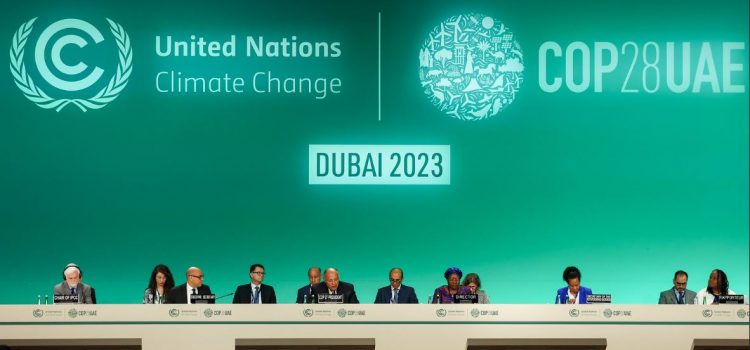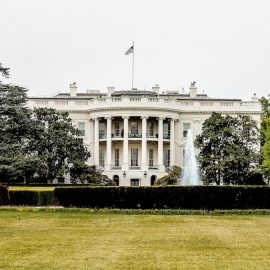
This is a free excerpt from one of Shortform’s Articles. We give you all the important information you need to know about current events and more.
Don't miss out on the whole story. Sign up for a free trial here .
What are the key takeaways from the 2023 UN Climate Change Conference? How have global stakeholders responded to the outcomes? Is the deal enough to thwart global warming’s threats?
The recent UN Climate Summit (COP28) in Dubai ended with a historic agreement, for the first time calling on nations to transition away from fossil fuel use. Critics argue the deal doesn’t go far enough, citing the pact’s weak language and support for transitional fuels and carbon capture technologies.
Here’s a look at how the 2023 Conference of Parties went down.
Image source: flickr
The 2023 Conference of Parties
Each year, the United Nations Framework Convention on Climate Change (UNFCCC) brings together leaders from nearly 200 countries for the Conference of Parties (COP) summit. The founding members of the 1992 UNFCCC treaty were the first to pledge their commitment to fighting climate change.
This year’s UN Climate Change Conference, COP28, focused on accelerating efforts to lower greenhouse gas emissions, curtailing reliance on fossil fuels, and aiding nations most impacted by climate change.
Top scientists around the world argue these goals are crucial because:
- The path to controlling global warming is heavily dependent on transitioning away from fossil fuels—75% of which are generated by burning oil, gas, and coal
- Swift and substantial emission reductions within this decade are vital to avoid triggering irreversible climate change impacts.
- The world’s temperature has already risen by 1.2 degrees Celsius since the mid-1800s, making this year the hottest on record.
COP28 Agreement
The COP28 agreement is being called historic, as it’s the first time nations have agreed to transition away from fossil fuel use. The deal also calls on countries to:
- Reach net-zero emissions by 2050.
- Achieve peak carbon emissions by 2025.
- Triple renewable energy use and double the speed at which efficiency improvements are made by the end of the decade.
The deal includes the summit’s inaugural “global stocktake”—a review of whether countries are on track to meet the key Paris Agreement goal of limiting warming to 1.5 C. Critics say the commitments in the pact fall short of the stocktake’s pressing demand for faster emissions reductions.
A major point of contention, the issue of “loss and damage,” saw progress with the operationalization of a long-discussed fund to provide financial aid and compensation to developing countries suffering the effects of climate change. However, questions remain about who and how much will be paid into the fund.
Finally, the agreement mandates that all participating countries submit enhanced emissions reduction plans by 2025. However, timelines and strategies in the non-binding pact are flexible and based on “different national circumstances.”
Public Reaction and Criticism
Climate activists, scientists, and environmental groups largely welcomed the historic mention of reducing fossil fuel use, saying it signals to investors that it’s time to pivot from fossil fuels to sustainable energy.
However, critics argue that the deal doesn’t go far enough. They point to flaws that enable the US and other major fossil fuel producers to continue expanding their oil, gas, and coal usage, and undermine the goal of limiting global warming to below 1.5 degrees Celsius. Additionally, small island nations severely affected by climate change voiced frustration that they weren’t in the room when the agreement was finalized.
Some of this funding will come from the Green Climate Fund, established under the Paris Agreement (COP21), which pledges $100 billion annually from wealthier nations to aid poorer ones in their energy transitions and climate adaptation strategies. However, critics argue that affluent countries like the US aren’t providing adequate funding for these efforts.

Want to fast-track your learning? With Shortform, you’ll gain insights you won't find anywhere else .
Here's what you’ll get when you sign up for Shortform :
- Complicated ideas explained in simple and concise ways
- Smart analysis that connects what you’re reading to other key concepts
- Writing with zero fluff because we know how important your time is






